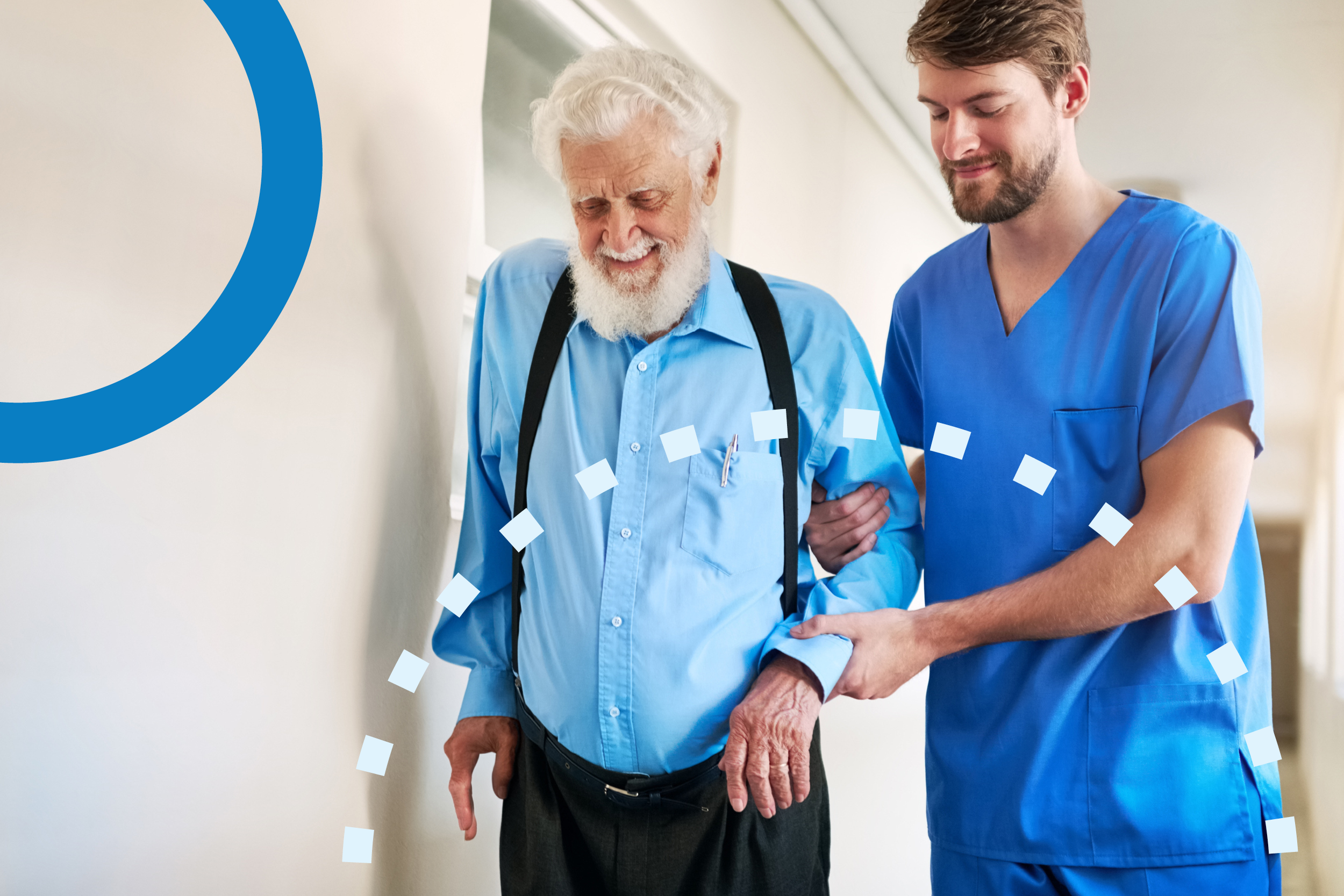
Fall Prevention Tips for Older Adults: How to Make Home Safer
Falls are a leading cause of injury among older adults, and beyond the physical impact, they can affect confidence and independence. For families, the worry of “what if” can feel constant — especially when a loved one wants to stay active and at home.
The good news is that many falls can be prevented. With small changes around the house, healthy routines, and the right support, it’s possible to lower risks and help your loved one feel safe, steady, and independent for longer.
How Falls Affect Health and Independence in Seniors
Anyone can trip or stumble, but for older adults, a fall can change daily life in an instant. Bones are more fragile, recovery can take longer, and injuries like hip fractures or head trauma can be especially serious. Beyond the physical impact, a fall often has emotional effects as well — the fear of falling again may lead a loved one to move less, which can result in reduced strength, confidence, and independence over time.
Understanding these risks isn’t about creating worry — it’s about being prepared. When families are aware of the dangers, they’re better equipped to take steps that protect their loved ones and provide them with greater peace of mind.

Making the Home Safer
According to the National Institute on Aging, small changes in the home can make a big difference in preventing falls. By focusing on the spaces your loved one uses most often, you can create an environment that supports safety, confidence, and independence.
Room-by-Room Safety Tips
- Living areas: Clear pathways of clutter, secure loose rugs, and move cords out of walkways.
- Kitchen: Keep frequently used items within easy reach, add non-slip mats near the sink, and ensure good lighting over counters and appliances.
- Bathroom: Install grab bars near the toilet and shower, use a shower chair or raised toilet seat if needed, and place non-slip mats on the floor.
- Bedroom: Add nightlights for visibility, keep a phone or call button close to the bed, and arrange furniture to allow wide, clear walking paths.
Lighting and Visibility
Poor lighting can turn even familiar spaces into fall hazards. Brighten the home by:
- Using higher-wattage bulbs to reduce shadows
- Adding motion-sensor lights in hallways, bathrooms, or staircases
- Highlighting steps or uneven flooring with contrasting tape or paint
- Maximizing natural light by keeping curtains open during the day
Smart Supports and Safety Devices
Technology can add another layer of protection and peace of mind:
- Voice-activated lighting: Reduces the need to move in the dark.
- Wearable fall-detection devices: Automatically alert caregivers if a fall occurs.
- Medical alert systems: Provide quick access to help with the press of a button.

Beyond the Home: Staying Strong and Lowering Fall Risks
Fall prevention isn’t just about the environment — it’s also about supporting overall health and well-being. Taking proactive steps can build strength, boost confidence, and reduce hidden risks that make falls more likely.
Staying Active and Strong
Regular movement helps maintain balance, flexibility, and coordination. Activities such as walking, gentle stretching, or tai chi can make a difference. Strength-building exercises — even simple exercises like chair squats or using resistance bands — help keep muscles strong enough to support daily activities.
Health and Lifestyle Factors
Sometimes, fall risks come from less obvious places:
- Vision changes can make it harder to notice obstacles.
- Medications may cause dizziness or drowsiness.
- Chronic conditions, such as arthritis or diabetes, can affect balance and coordination.
- Footwear without proper support may increase the risk of slipping.
By combining healthy routines with regular check-ins from a healthcare provider, families can take meaningful steps to lower these risks and help their loved one feel steady on their feet. For more tips, explore fall-prevention guides from the National Council on Aging and the Centers for Disease Control and Prevention.

CorsoCare Home Health Can Help You Stay Steady and Safe
Fall prevention is about more than avoiding accidents — it’s about maintaining confidence, independence, and peace of mind. At CorsoCare Home Health, we understand how overwhelming it can feel to balance safety with independence, and we’re here to help.
Our team can:
- Assess your home for potential fall risks.
- Provide physical or occupational therapy to improve strength, balance, and mobility.
- Offer guidance on managing health conditions and medications that increase fall risk.
- Support families with reassurance and resources every step of the way.
Reaching out for help doesn’t mean giving up independence — it means making sure you or your loved one can continue living safely and securely at home. Contact CorsoCare Home Health today to learn how we can help reduce fall risks and provide the support you need to stay steady and confident.

